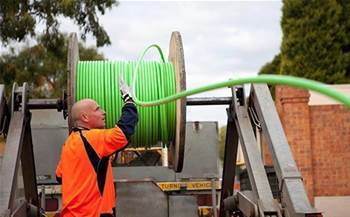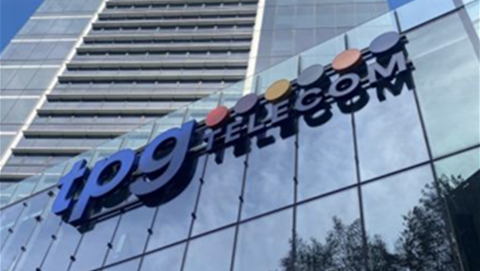NBN Co has offered to tweak its 50Mbps pricing so that heavy users can’t rack up excessive bandwidth bills that then have to be offset.
The company yesterday offered [pdf] to set “floor” - $50 - and “ceiling” - $55 - wholesale prices for 50Mbps users, depending on their usage profile.
Those prices are good for FY24 only, and would increase each year after.
But the net effect is that a “heavy” 50Mbps user would cost the same as a 100Mbps user to serve, but not more, which was a possibility under an earlier pricing proposal.
Retail internet providers will still need to balance the mix of users in the 50Mbps tier, especially if they want to maintain a price gap between their 50Mbps and 100Mbps offers: have too many of what NBN Co deems “heavy” users in the 50Mbps tier, and it will skew wholesale costs for both products to be about the same.
That is, of course, intentional on NBN Co’s part: it believes any user that needs more bandwidth than comes standard with a 50Mbps service should be pressed by their provider into upgrading.
Incidentally, NBN Co objects to this being characterised as “forcing” upgrades; it prefers “incentivises”.
Certainly, there’s less of a “force” in play when a 50Mbps user doesn't cost more to serve than a 100Mbps user. There is also a definite “incentive” for a provider to still try to move that 50Mbps user costing $55 a month wholesale up to 100Mbps, since the cost to the provider to serve that customer remains the same.
The sticking point would be convincing the customer to pay the higher retail cost, especially if their budget or copper-based line doesn’t support 100Mbps speeds.
But NBN Co has an answer for that: providers can either upsell “heavy” users, or migrate them to 100Mbps for free.
“NBN Co encourages [providers] to pass the higher speeds on to end-users, either by upselling them to a higher value retail plan (improving end-user experience and potentially increasing retail margins) or bestowing the higher speed onto the customer with no additional charge (adding value and improving end-user experience),” the company said.
No CVC 'pool'
Currently, retail internet providers have to get creative to balance the cost of supporting all users in the 50Mbps tier and below.
Each plan comes with a certain amount of included bandwidth: some users need more and some less.
All this bandwidth is “pooled”. Under this model, heavier users’ requirements for bandwidth may be offset by lighter users, who do not use or need their full allocation.
But that offset may not cover all users’ needs all of the time, and the provider may have to still buy additional bandwidth, known as overage.
Retailers have developed sophisticated systems to maximise offset and limit their costs in this model. Some examples of this innovation are public.
Under NBN Co’s proposal, however, much of this creative accounting would no longer be required.
The ‘pool’ would cease to exist; internet providers would know that a 50Mbps customer would cost between $50 and $55 wholesale a month to serve in FY24 (with corresponding price increases each year after).
NBN Co said it “does not anticipate that there would be direct flow-on impacts to [providers’] systems as a result of the introduction of the floor and ceiling proposal”, but said some providers “may wish to implement supporting functions and systems for internal reconciliation purposes.”
“This new cost certainty framework would ensure that, regardless of the types of end-users [internet providers] acquire, the total wholesale cost of an individual 50Mbps service would be constrained to be, at most, the flat-rate charge for 100/20Mbps,” NBN Co said.
“[But] NBN Co acknowledges that the floor and ceiling proposal represents a significant change from the current approach, and will have differential impacts on [providers], dependent on their speed-tier mix and distribution of customer usage.”
NBN Co said the proposal is "revenue neutral"; that is, it would not eat into its earnings. That is important in part because 50Mbps is the company's most popular product, and it's also where the company expects to "recover" most of its costs in the three years to FY26.
NBN Co hopes the latest proposal will smooth the path to acceptance of a revised special access undertaking (SAU), which sets price and non-price terms for network access through to 2040.
Its 50Mbps pricing was cited as a key reason for a revised SAU to be rejected again.




.jpg&h=140&w=231&c=1&s=0)
.png&h=140&w=231&c=1&s=0)





















